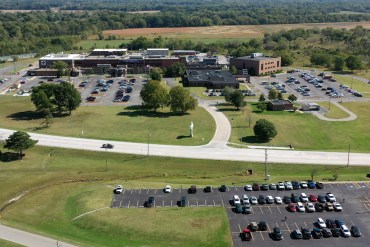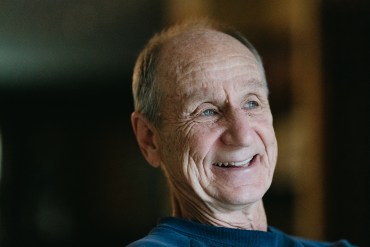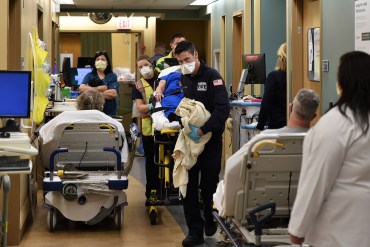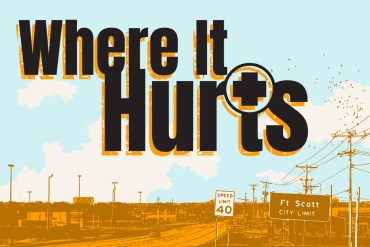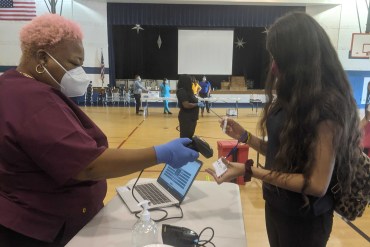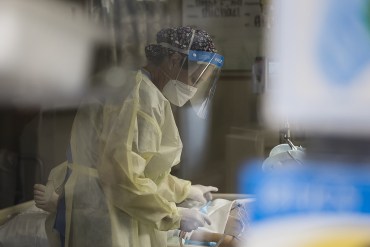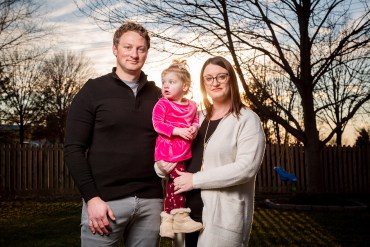Black Tech Founders Want to Change the Culture of Health Care, One Click at a Time
Just as Uber Eats and Grubhub revolutionized food delivery, Black tech entrepreneurs want to change the way patients connect with doctors. They are using technology to match people of color with culturally competent professionals and the transportation they need to get to them.
As Big Pharma and Hospitals Battle Over Drug Discounts, Patients Miss Out on Millions in Benefits
The number of pharmacies dispensing 340B discounted drugs soared to more than 31,000 this year. Drugmakers struck back by halting some discounts. Hospitals say they are losing millions of dollars — and cutting back services to patients — as a result.
Missouri’s Thin Dental Safety Net Stretched Amid Medicaid Expansion
An estimated 275,000 Missouri adults can get dental insurance now as the state has expanded who is eligible for Medicaid. But with so few dentists participating in the program, the state’s already-backlogged dental clinics are facing a glut of new clients.
How Rural Communities Are Losing Their Pharmacies
More than 1,000 independent rural pharmacies have closed since 2003, leaving 630 communities with no retail drugstore. As 41 million people stuck in pharmacy deserts make do, the remaining drugstores struggle to survive.
How One Health Center Is Leading Chicago on Kid Covid Shots
A health center with clinics on Chicago’s southwest side that serves mostly Hispanic patients has provided the most covid shots to kids in the city by being accessible, (literally) speaking the language of the community and setting up pop-up clinics at schools and parks. It provides a few lessons as the nation gears up to vaccinate 5- to 11-year-olds.
If Congress Adds Dental Coverage to Medicare, Should All Seniors Get It?
Health equity advocates see a once-in-a-generation opportunity to provide a dental benefit to millions of older Americans as Congress considers expanding Medicare services. But complicating that push is a debate over how many of the more than 60 million Medicare recipients should receive dental coverage.
ERs Are Swamped With Seriously Ill Patients, Although Many Don’t Have Covid
Certain patients who couldn’t get in to see a doctor earlier in the pandemic, or were avoiding the covid risks inside hospitals, have become too sick to stay away. Many ERs now struggle to cope with an onslaught of demand.
‘No Mercy’ Bonus Episodes: More From Fort Scott, Kansas
Check out the latest bonus episodes from the award-winning “Where It Hurts” podcast.
‘Are You Going to Keep Me Safe?’ Hospital Workers Sound Alarm on Rising Violence
Health care workers already bore the brunt of workplace violence in the U.S. Now, tensions from an exhausting pandemic are spilling over into hospitals.
Covid Is Killing Rural Americans at Twice the Rate of Urbanites
The pandemic is devastating rural America, where lower vaccination rates are compounding the already limited medical care.
Firefighters on Front Lines, No Strangers to Risk, Push Back Against Covid Vaccine Mandates
Among the people still reluctant to get vaccinated — and pushing against mandates — are firefighters, many of whom also respond to medical calls as paramedics and EMTs and have witnessed the ravages of the pandemic firsthand.
These Schools Use Weekly Testing to Keep Kids in Class — And Covid Out
Coronavirus outbreaks have shuttered K-12 classrooms across the U.S., affecting tens of thousands of K-12 students. To avoid the same fate, some school districts are tapping federal dollars to set up testing programs and step up their vigilance against the virus.
Lack of a Vaccine Mandate Becomes Competitive Advantage in Hospital Staffing Wars
After months of burnout from the pandemic, hospitals are scrambling to fill nursing and other jobs. Some administrators, particularly in rural areas, are afraid to implement vaccine mandates that alienate their short-handed staffs.
Concert Venues Are Banking on Proof of Vaccines or Negative Tests to Woo Back Fans
Two days before hosting an outdoor Wilco concert, the St. Louis Music Park announced it would require proof of vaccination or a negative covid test for all ticket holders, sending some attendees scrambling and upending plans. Concertgoers, promoters and venues nationwide are all having to pivot quickly to find safer ways of enjoying live music amid the pandemic’s delta surge.
What Missouri Learned the Hard Way About Rapid Covid Testing in Schools
Missouri’s ambitious school testing plan landed with a thud. What it can teach us now about keeping the delta variant out of classrooms.
In Rural America, Twisting Arms to Take a Covid Vaccine First Takes Trust
In communities across the country, the Cooperative Extension System, the same organization that supports 4-H clubs nationally, is tapping its roots in rural communities to promote vaccines. But its approach to getting people vaccinated in many communities, including Cairo, Illinois, must be nuanced.
Hard Lessons From a City That Tried to Privatize Public Health
Facing bankruptcy, Detroit largely dismantled its public health department in 2012, and the city essentially went two years without a government-run public health system. Five years later, this major American city offers a grim cautionary tale.
Bye-Bye to Health Insurance ‘Birthday Rule’? Kansas Lawmaker Floats Fix
U.S. Rep. Sharice Davids (D-Kansas) introduced a bill to do away with a health insurance rule that dictates which parent’s plan becomes a new baby’s primary insurer. This could save some parents from unexpected, sometimes massive medical bills. Davids took up the issue after a KHN/NPR Bill of the Month story on one family’s unexpected $207,455 NICU bill.
As Holdout Missouri Joins Nation in Monitoring Opioid Prescriptions, Experts Worry
Missouri is the last state to create a monitoring program to help spot the misuse of prescription drugs. But some public health experts warn that the nation’s programs are forcing people addicted to opioids to seek deadlier street options.
The Delta Variant Thrives in a State of Political and Public Health Discord
At the center of the nation’s delta variant outbreak, public health efforts are mired in a political turf war.




